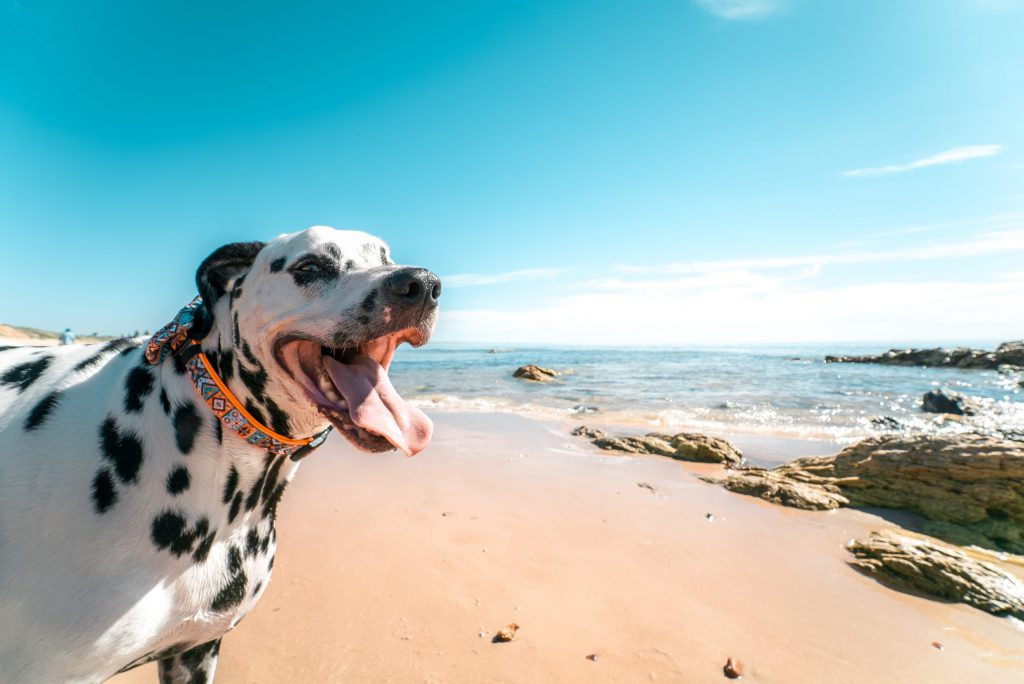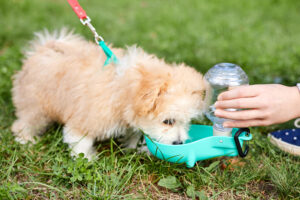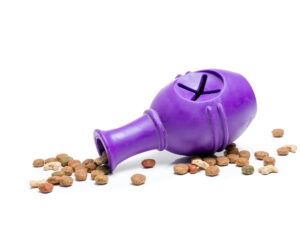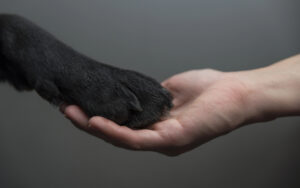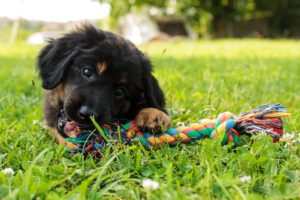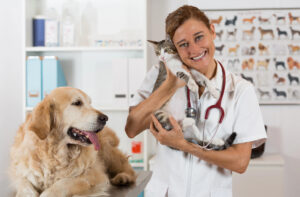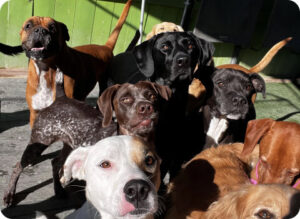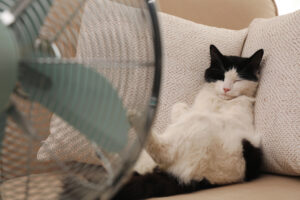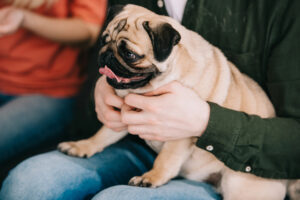Summer is a great time for fun and frolicking with your pet, but it can also put your pet at risk for heatstroke and other dangers. We know you love your pets and want to do everything you can to keep them safe, so we’ve put together this list of tips for summer pet safety so you can keep them cool and safe all summer long!
Tips for Summer Pet Safety
Take Your Pet for a Checkup
It’s always a good idea to take your pet to the vet for an early-summer checkup just to make sure they’re in good health and ready for some summer fun! This checkup is also a great time to get your pet tested for heartworm if they aren’t taking year-round preventative medication.
Stay Cool & Hydrated
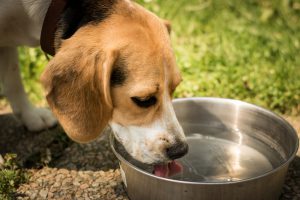 It’s easy for your pet to quickly become dehydrated, especially when they’re running around in the summer heat, so make sure to keep plenty of fresh, clean, water available for them. It’s also important that your pet has a shady place to relax so they can get out of the sun and cool down.
It’s easy for your pet to quickly become dehydrated, especially when they’re running around in the summer heat, so make sure to keep plenty of fresh, clean, water available for them. It’s also important that your pet has a shady place to relax so they can get out of the sun and cool down.
Know the Symptoms of Overheating & How to Treat Them
In order to recognize when your pet is becoming overheated, you need to know the signs. These include
- Excessive panting or difficulty breathing.
- Increased heart and respiratory rate.
- Drooling.
- Mild weakness.
- Loss of consciousness.
- Seizures.
- Bloody diarrhea and vomiting.
- A body temperature over 104 degrees.
If your pet experiences any of these symptoms, move them into a shady or air-conditioned area and apply ice packs or cold towels to their head, neck, chest, or run cool water over their body. Try to get them to drink small amounts of water or lick ice cubes to cool down, and take them to a veterinarian as soon as possible.
 Keep in mind that if your pet has a flat face, such as Pugs, French Bulldogs, Persian cats, or Himalayan cats, they are more susceptible to heatstroke because they cannot pant as effectively as other breeds can. Other pets at higher risk for heatstroke are those who are elderly, overweight, or pets with heart or lung diseases. As much as possible, these pets should be kept in cool, air-conditioned rooms.
Keep in mind that if your pet has a flat face, such as Pugs, French Bulldogs, Persian cats, or Himalayan cats, they are more susceptible to heatstroke because they cannot pant as effectively as other breeds can. Other pets at higher risk for heatstroke are those who are elderly, overweight, or pets with heart or lung diseases. As much as possible, these pets should be kept in cool, air-conditioned rooms.
Finally, never leave your pet alone in a parked vehicle, as this can easily lead to heatstroke, even if only left alone for a few minutes. Leaving a pet alone in a car is also illegal in some states.
Keep Exercising to a Minimum
 Exercising can also increase your pet’s risk of overheating or heatstroke. It’s important for both you and your pet to stay active, but you may want to adjust how you do this or the time during which you exercise. Avoid midday activities, because this is when the sun’s heat is at its strongest. Changing your exercise routine to the early morning or late evening will allow your pet to get the exercise they need without overheating. You may also want to limit the amount of time you spend exercising your pet.
Exercising can also increase your pet’s risk of overheating or heatstroke. It’s important for both you and your pet to stay active, but you may want to adjust how you do this or the time during which you exercise. Avoid midday activities, because this is when the sun’s heat is at its strongest. Changing your exercise routine to the early morning or late evening will allow your pet to get the exercise they need without overheating. You may also want to limit the amount of time you spend exercising your pet.
Be Mindful of Humidity
Humidity can affect your pet just as much as the temperature because it causes the day to feel even hotter than it may already be. Your pet relies on panting in order to get rid of heat in their body, but if the humidity level is too  high, they may not be able to cool themselves down this way, causing their body temperature to skyrocket.
high, they may not be able to cool themselves down this way, causing their body temperature to skyrocket.
You may want to take your pet’s temperature and if it’s over 104 degrees, treat them for heatstroke and take them to a vet immediately.
Fans May Not Be Helpful
Fans are not effective for cooling down pets like they are for us humans. As we know, animals pant to get rid of heat and dogs specifically sweat through their paws. Because of this, fans aren’t as helpful for cooling off pets as they are for humans.
Cooling Down Your Pet
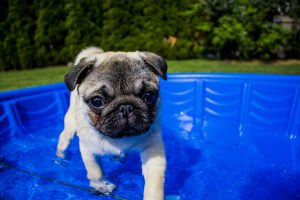 Making some DIY frozen treats or buying some from your local grocery store is a helpful and tasty way to keep your pet cool during the hot summer months. Having a cooling wrap, mat, or vest is another to make sure your pet is able to keep their temperature down no matter how hot it gets. You can also give your dog a quick soak in cool water if baths aren’t too distressful for them. You can even get a small pool for your dog to take a dip whenever they need to.
Making some DIY frozen treats or buying some from your local grocery store is a helpful and tasty way to keep your pet cool during the hot summer months. Having a cooling wrap, mat, or vest is another to make sure your pet is able to keep their temperature down no matter how hot it gets. You can also give your dog a quick soak in cool water if baths aren’t too distressful for them. You can even get a small pool for your dog to take a dip whenever they need to.
Stay Safe in the Water
Avoid leaving your pets unsupervised if they’re around a pool, because not all dogs are strong swimmers or will be 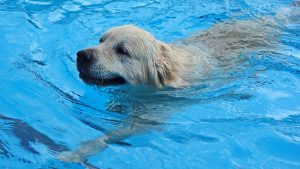 able to easily get in and out of a pool. You should slowly introduce your pet to water and make sure they have a vest or some other type of flotation device when swimming or on a boat.
able to easily get in and out of a pool. You should slowly introduce your pet to water and make sure they have a vest or some other type of flotation device when swimming or on a boat.
You should also bathe your dog after swimming to remove any salt, chlorine, or other chemicals from their fur, which can cause irritation.
Unscreened Windows
When windows are unscreened pets can easily fall out of them. If you like to keep your windows open during summer evenings and nights for a cool breeze, it’s best to make sure your windows are securely screened.
Summer Grooming
While you may feel that shaving your dog will keep them cooler during summer, this is actually not the case. The many layers of your dogs’ coat protect them from both overheating and sunburn.
For cats, you should brush them more often than you would during cooler months in order to prevent overheating.
When applying sunscreen or insect repellent to your pets, make sure that it’s specifically labeled for animals so that you know it’s safe for them to use.
Keep Away from Asphalt
On particularly hot and sunny days, asphalt can quickly reach high temperatures, and letting your pet stand on asphalt, even for a short period of time can also cause your pet’s body to quickly heat up. In addition to this, hot asphalt can potentially burn your pet’s paw pads. Getting booties for your pet’s paws will protect them when walking if you know that coming across hot surfaces will be inevitable. During hot summer months, your pet’s walks should be shorter anyway due to the heat.
Avoid Harmful Chemicals
 Insecticides commonly used in lawns and gardens, as well as rodenticides, can be very harmful to your dog or cat if ingested. Make sure that these and other chemicals are always kept safely stored and out of reach of your pet. You should also keep citronella candles, tiki torch products, and insect coils away from your pets’ reach as well, as these are also harmful.
Insecticides commonly used in lawns and gardens, as well as rodenticides, can be very harmful to your dog or cat if ingested. Make sure that these and other chemicals are always kept safely stored and out of reach of your pet. You should also keep citronella candles, tiki torch products, and insect coils away from your pets’ reach as well, as these are also harmful.
If your pet ingests any of these chemicals or some other poisonous substance, immediately call your veterinarian or the ASPCA Poison Control Center at (888) 426-4435.
Don’t Invite Your Pet to Your Barbeque
 Although your pet may put on their cutest puppy dog face to beg for food during your barbeque, you should keep in mind that some of the food or drink items commonly found at barbeques can be potentially poisonous to your pet. Alcoholic beverages should be kept away from your pets because they can cause intoxication, depression, or even comas. In addition to this, even if certain foods aren’t poisonous to your pet, keep in mind that their stomach may still be sensitive to the food or seasoning used, so giving this food to your pet can cause digestive trouble for them.
Although your pet may put on their cutest puppy dog face to beg for food during your barbeque, you should keep in mind that some of the food or drink items commonly found at barbeques can be potentially poisonous to your pet. Alcoholic beverages should be kept away from your pets because they can cause intoxication, depression, or even comas. In addition to this, even if certain foods aren’t poisonous to your pet, keep in mind that their stomach may still be sensitive to the food or seasoning used, so giving this food to your pet can cause digestive trouble for them.
Foods that you should specifically avoid include raisins, grapes, onions, chocolate, and any product that has xylitol in its ingredients list. You can also take a look back at our blog discussing which foods are and are not safe for your pet.
Firework Safety
 Although Independence Day may have come and gone, you may continue to hear or even attend summer celebrations that may involve fireworks. Exposing your pet to fireworks can lead to exposure to hazardous chemicals or even severe burns, so you should always keep your pet far away from them.
Although Independence Day may have come and gone, you may continue to hear or even attend summer celebrations that may involve fireworks. Exposing your pet to fireworks can lead to exposure to hazardous chemicals or even severe burns, so you should always keep your pet far away from them.
Many pets tend to be frightened by the sound of fireworks as well, so make sure your pet is not close to the noise, and in a safe and secure room or area they cannot escape from or hurt themselves in. It may also help to ensure your pet has an ID tag on or is microchipped, just in case.
Have a Plan
 Power outages during summer are common, and this can leave you in the heat without air conditioning to stay cool. Before this happens, you may want to create a plan for how you will keep your pets cool and safe, because you never know how long an outage will last.
Power outages during summer are common, and this can leave you in the heat without air conditioning to stay cool. Before this happens, you may want to create a plan for how you will keep your pets cool and safe, because you never know how long an outage will last.
If you are in the San Diego area and looking for quality pet care services, including dog training you can rely on Fon Jon Pet Care. Contact Fon Jon Pet Care at 1-858-250-3601 or visit our site today and we will be happy to help you with your pet care service needs.




